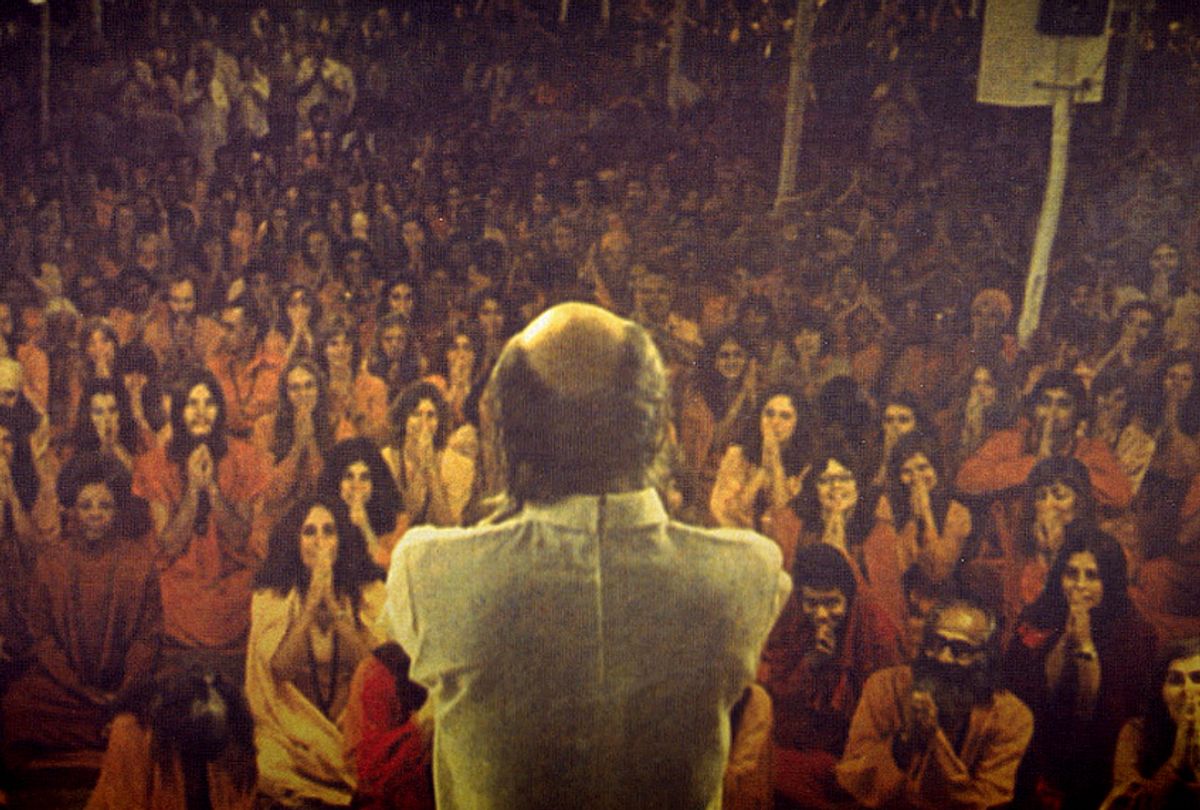Cults are having an undeniable moment. The year’s biggest marathon conversation piece is Netflix’s "Wild Wild Country" documentary series, which chronicles the bizarre saga of the Bhagwan Shree Rajneesh and his followers in 1980s Oregon. One of the most buzzed about novels of the season is "Cult X" by Japanese writer Fuminori Nakamura, inspired by the 1995 sarin gas terrorist attack on the Tokyo subway by the Aum Shinrikyo cult. News is constantly emerging about the alleged sex enslavement cult-within-a-cult presided over by NXIVM leader Keith Raniere and high-profile disciple and former “Smallville” star Allison Mack. And while Charles Manson died last year, the court battle over whether the youngest Manson family member involved in the infamous murders, Leslie Van Houten, will finally be paroled is ongoing.
So cults are having a moment, but . . . aren’t they always?
When my co-host Cher Martinetti and I decided to start our new podcast about cults, “Cult Faves,” it took about five minutes to determine we would never run out of material. Cults, new religious movements, multi-level marketing schemes and fringe interests of all kinds are deeply embedded in American culture. We wanted an excuse to delve deeper into extreme beliefs and the extreme believers they attract.
Martinetti described her fascination with cults on our first episode. “It’s a very human thing to want to have this understanding of a higher power or a god or something else. If you look back since the beginning of time, humans have had these mythologies and ideologies and religions that they have believed in, and it’s interesting when you start seeing how they’ve evolved and how they can go into this extreme territory. When they go into that extreme area where it becomes classified as a cult, not just with ideology but in general, I think it’s really interesting because there’s a definite type of personality that ends up being a cult leader. They’re almost always men, almost always white men, which speaks a lot to power structure and dynamics in our society.”
Those cult dynamics often mirror abusive or toxic relationships in a way many of us can directly relate to, especially in the time of #MeToo and #TimesUp. As much as we all want to believe cult-think and behavior exists at the far edges of our society, we’re living in world where extremism is often presented as the norm. The consequences of any given Fox News commentator’s (or the President’s) outrageous beliefs about other people and the larger world can get woven into the fabric of daily life in some intensely damaging ways. And so, sure, while talking about cults provides plenty of opportunities to cheekily point out the genre of leaders who look like portraits of Jesus and decide to lean into it, it’s also a means to examine the stories people tell themselves and why, even when the stories hurt them or others. Relevant to the year 2018? We think so.
Take a lesser-known, short-lived cult like the Source Family, which we discus on our first show. A cult built in 1970s California on a shared affinity for sex, drugs, rock and roll — and vegetarian food — the self-christened leader Father Yod married a young waitress at his groundbreaking restaurant only to take on more than a dozen other wives, all while claiming to revere women. He peddled a hodgepodge of New Age and Eastern spirituality to a group of roughly 150 followers, many of whom worked at the famous Source restaurant he founded.
“In the beginning, it sounds like he’s riding this high of enlightenment and spirituality,” said Martinetti, detailing the development of the cult. “But if you rename yourself Father Yod, you might be a cult leader.”
Eventually, the Source Family is driven from homes called the Father and Mother House respectively, and, after the Manson Family murders put California on high alert for anything remotely resembling cult activity, moved to Hawaii. Their leader’s belief that they shouldn’t seek medical attention meant he died in a tragic accident just two years after taking on his new mantle.
Listen to our full discussion about cults and what makes the Source Family such an fascinating specimen.
Learn more about "Cult Faves" and subscribe to the podcast on iTunes, Stitcher, Google Play and more.

Shares